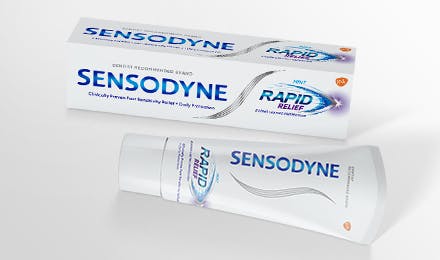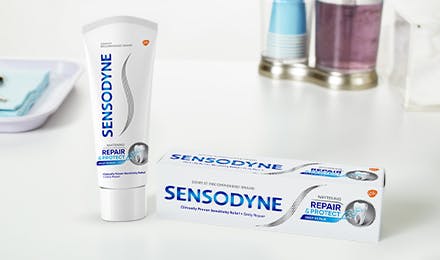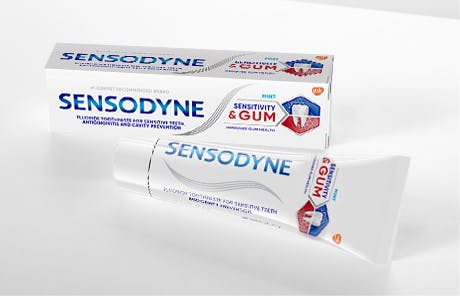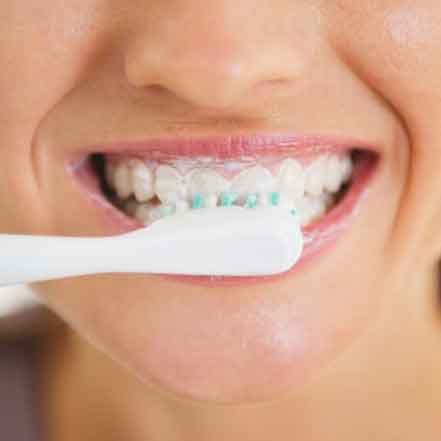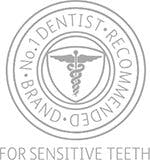Tooth Sensitivity After a Crown
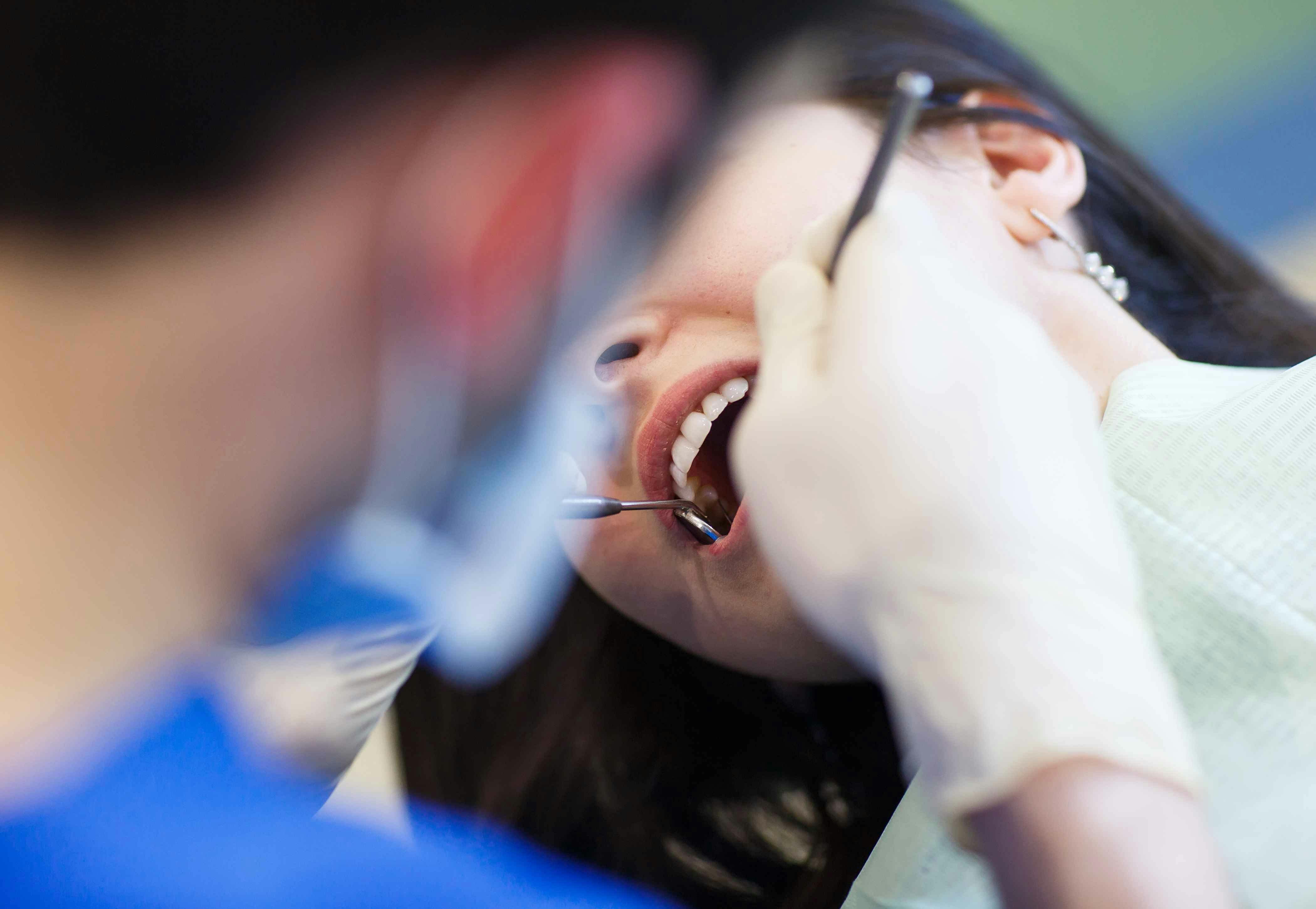
If you’ve recently received a tooth crown (also known as a dental crown, or cap), you might be surprised to feel sensitivity or discomfort. After all, a crown protects and covers a damaged tooth.1 But sometimes crowns, especially temporary ones, can feel sensitive after your procedure.2 Find out what causes tooth sensitivity after a crown cementation and whether you should talk with your dentist.
What Is a Tooth Crown?
A tooth crown is a tooth-shaped “cap” or protective cover that your dentist places over your tooth to restore its shape, size and appearance.2 A crown is cemented onto your tooth and covers the tooth so it can function normally again.2
You may need a crown for several reasons, including:2
- Covering misshapen or discolored teeth
- Restoring a broken tooth
- Holding a dental bridge in place
- Protecting a tooth after a root canal
- Covering a tooth with a large filling
- Protecting a weak or decaying tooth from breaking
- Covering a dental implant
Crowns can be made from different materials, including metal alloys, porcelain fused to metal, ceramic and resin.2 Dentists usually select a material based on the color of your tooth, the tooth’s location and the cost of the material.2
Tooth Sensitivity from a Temporary Crown
To ensure your crown fits perfectly, your dentist will take an impression or model of your tooth and use it to create a permanent crown.2 While you’re waiting for your new crown, a temporary crown will be placed over your tooth to protect it.2 Permanent crowns usually take around two weeks to make, and you may feel some discomfort and sensitivity to cold and hot foods while you’re wearing your temporary crown.2 Avoid chewing gum and eating sticky foods during this time.2
What Else Causes Tooth Crown Sensitivity?
Crowns, like natural teeth, can break.2 This can expose the tooth underneath the crown, making it susceptible to decay and damage, which can lead to tooth sensitivity.2,3 Some common reasons for tooth sensitivity include:
Tooth Decay
Just like a natural tooth, a crown can break and lead to tooth decay, which may cause sensitivity.2 Sensitivity from tooth decay occurs when dentin is exposed. Dentin contains microscopic tubules that connect to the sensitive nerves inside the tooth.3 When dentin is exposed, the sensations from the food you eat travel to your nerves, causing pain and sensitivity. This is especially true of hot, cold, sticky and acidic foods.3
To avoid decay, clean your crown like you would your normal teeth.4 Use a fluoride toothpaste twice a day and clean in between your teeth with floss or an interdental device.4 If you’re experiencing tooth sensitivity and your crown feels loose, contact your healthcare provider.
Teeth Grinding
Bruxism, also known as teeth grinding, can lead to worn opposing teeth, toothaches, and jaw pain. Grinding teeth can also cause tooth sensitivity after a new crown.5 If your crown sits higher than the rest of your teeth, you’re more susceptible to tooth grinding.5 Contact your dentist if this becomes a problem, as they may need to adjust the height of the crown.
Treating Tooth Sensitivity After Crown Cementation
If your tooth is feeling sensitive after a crown cementation, try these remedies to relieve your discomfort:2,3
- Use pain medication. Over-the-counter pain medication can be useful for the management of acute pain due to dental procedures.6
- Avoid hard foods. Biting down on hard surfaces can cause sensitivity or even crack your crown, depending on its material. Avoid chewing on ice or other hard foods.2
- Stop grinding teeth. If you grind your teeth at night, consider purchasing a night guard.5
Although tooth sensitivity or pain after a new crown can be alarming, the cause may often treatable either at home with an analgesic or by your healthcare provider. For more information about treating sensitive teeth, check out the Sensodyne website.
Sensodyne products are not intended for treating pain after a crown placement. Sensodyne products are intended for relief of occasional dentin hypersensitivity that can occur when tooth enamel wears away and exposes the soft, inner part of your tooth called dentin. When the dentin is exposed and loses its protective covering, this can lead to hypersensitivity and discomfort when you eat hot foods, drink cold liquids, eat sweet or sour foods, or when you breathe through your mouth.
Source Citations:
- Crowns. Mouth Healthy. https://www.mouthhealthy.org/en/az-topics/c/crowns. Accessed 7/15/21.
- Why Do I Need a Crown? American Dental Association. https://ebusiness.ada.org/Assets/Docs/S77981.pdf. Accessed 12/21/21.
- Sensitive Teeth - Heat and Cold Sensitivity - American Dental Association. https://www.mouthhealthy.org/en/az-topics/s/sensitive-teeth. Accessed 8/30/22.
- Crowns - Oral Health Foundation https://www.dentalhealth.org/crowns. Accessed 8/30/22.
- What Dental Issues Look Like. Mouth Healthy. https://www.mouthhealthy.org/en/what-dental-issues-look-like. Accessed 2/4/22.
- Oral Analgesics for Acute Dental Pain. American Dental Association. https://www.ada.org/resources/research/science-and-research-institute/oral-health-topics/oral-analgesics-for-acute-dental-pain. Accessed 2/4/22.


